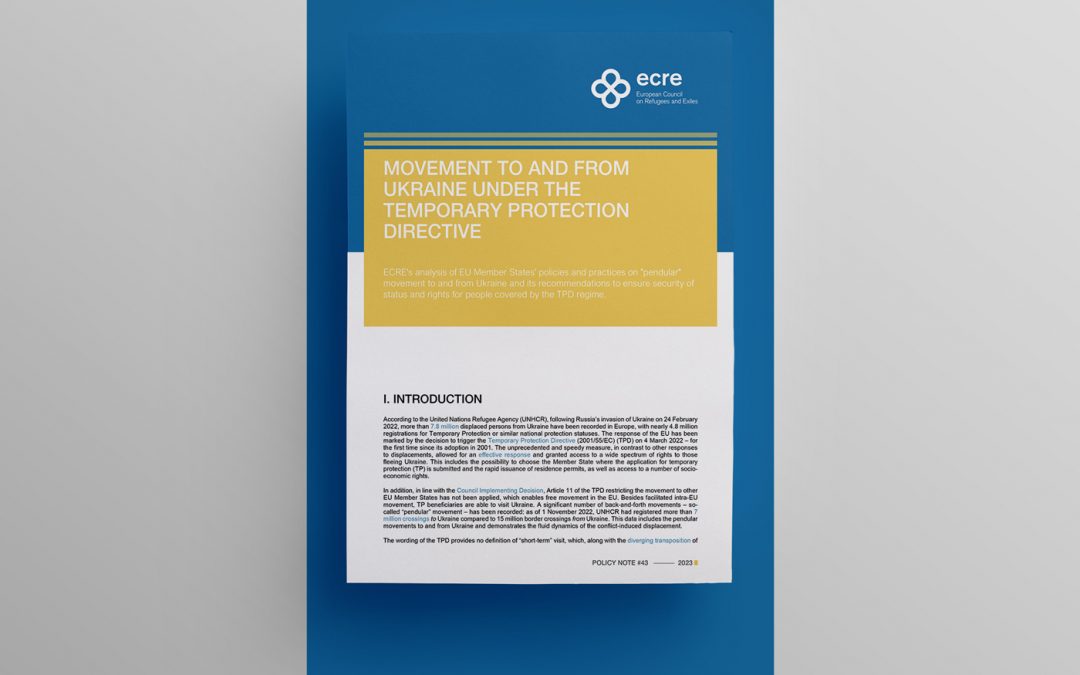ECRE published this week a Policy Note on its analysis of EU Member States’ policies and practices on “pendular” movement to and from Ukraine and its recommendations to ensure security of status and rights for people covered by the TPD regime.
The EU’s response to displacement from Ukraine, including the decision to trigger the Temporary Protection Directive on March 2022 allowed for an effective response and granted access to a wide spectrum of rights to those fleeing Ukraine. This includes the possibility to choose the Member State where the application for temporary protection (TP) is submitted and the rapid issuance of residence permits, as well as access to a number of socioeconomic rights. In addition, in line with the Council Implementing Decision, Article 11 of the TPD restricting the movement to other EU Member States has not been applied, which enables free movement in the EU.
Besides facilitated intra-EU movement, TP beneficiaries are able to visit Ukraine. A significant number of back-and-forth movements – so called “pendular” movement – has been recorded: as of 1 November 2022, UNHCR had registered more than 7 million crossings to Ukraine compared to 15 million border crossings from Ukraine. This data includes the pendular movements to and from Ukraine and demonstrates the fluid dynamics of the conflict-induced displacement.
Given the absence of the clear legal provisions regulating pendular movements to and from Ukraine of TP holders, this Policy Notes analyses the related practices of the EU Member States considering the purpose and objectives of the TPD, namely to lighten the administrative burden on the asylum system, to ensure minimum standards for TP, and to promote a balance of efforts between the Member States in receiving displaced persons. The Policy Note concludes by outlining a set of recommendations.
Due to the volatility of the situation in Ukraine, and the uncertainty of current TP beneficiaries about their possible future voluntary return to Ukraine, it is essential to ensure continued access to the protection afforded by the Directive and the respective rights and benefits even in the case of pendular movement.
For further information:
- ECRE Recommendations, The EU’s Response to Displacement from Ukraine, January 2023

